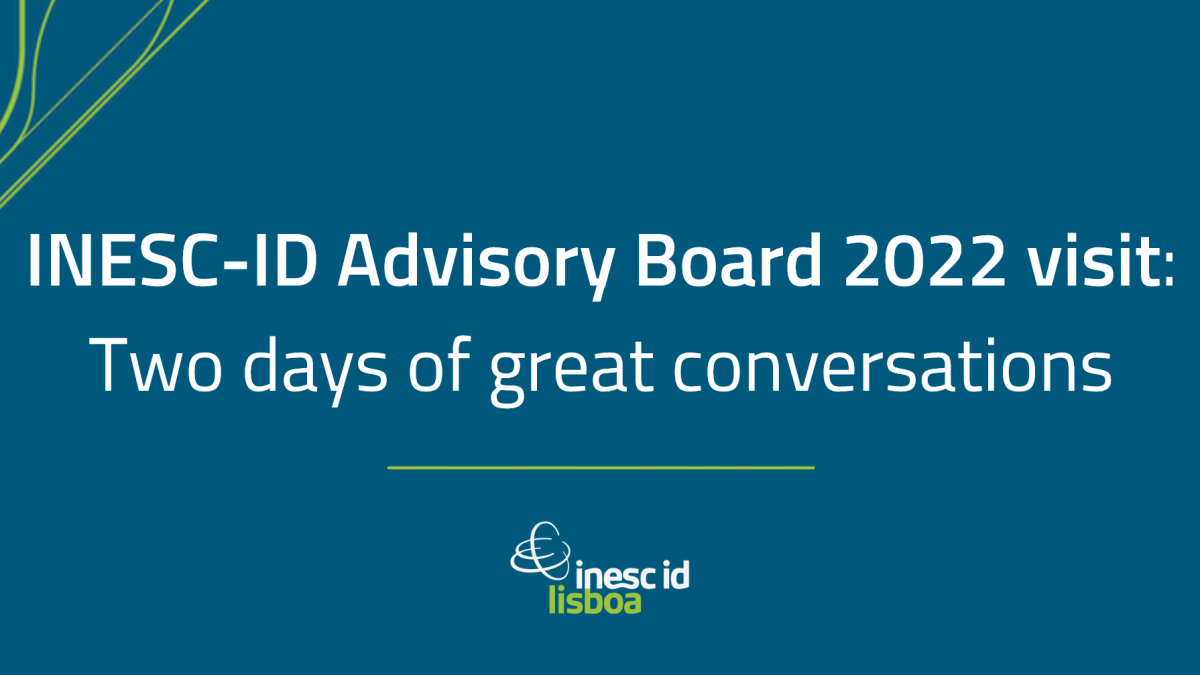
INESC-ID Advisory Board 2022 visit: two days of great conversations
These past two days — 07 and 08 November — comprised the biennial visit of the INESC-ID Advisory Board.
Across the Alves Redol and Tagus Park INESC-ID campi, these two days of intense discussion allowed members of the Advisory Board to meet with the institute’s Board of Directors and Board of the Scientific Council, as well as with the coordinators of all four Thematic Lines and eleven Research Areas. Advisory Board members also had the opportunity to interact with INESC-ID researchers over poster sessions and explore some of the great work currently under development by our enthusiastic scientists and engineers.
At the end of their visit, the Advisory Board left the INESC-ID community with a bounty of praise for achievements already conquered and provided invaluable insight on how to overcome challenges to come.
Aside from its biennial on-site visit, the Advisory Board interacts on an annual basis with INESC-ID to provide an overall evaluation of the institution based on proposed reports and plans, as well as to decide on internal awards and to provide counseling on several other matters, on which the Advisory Board is consulted for medium to long-term strategic input.
Composed of an international body of renowned researchers and academics across the ICT field who provide independent guidance and strategic assessment to the institute, the seven current members of the INESC-ID Advisory Board are:
- Prof. Srinivas Devadas, Massachusetts Institute of Technology (United States of America) – Chair of the Advisory Board;
- Prof. Bram Nauta, University of Twente (Netherlands);
- Prof. Ingrid Moerman, Ghent University (Belgium);
- Prof. José Carlos Princípe, University of Florida (United States of America);
- Prof. Marija Ilic, Carnegie Mellon University (United States of America);
- Prof. Morris Sloman, Imperial College London (United Kingdom);
- Dr. Ricardo Baeza-Yates, NTENT (United States of America);
INESC-ID thanks the Board of its Scientific Council, its varied and brilliant group of researchers, as well as its support staff, for all the great outcomes of this Advisory Board visit, for whose members — and the generosity of their feedback — INESC-ID is indebted and immensely grateful.
